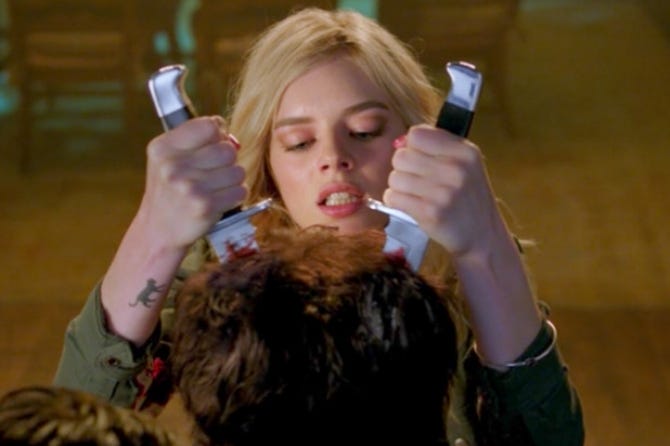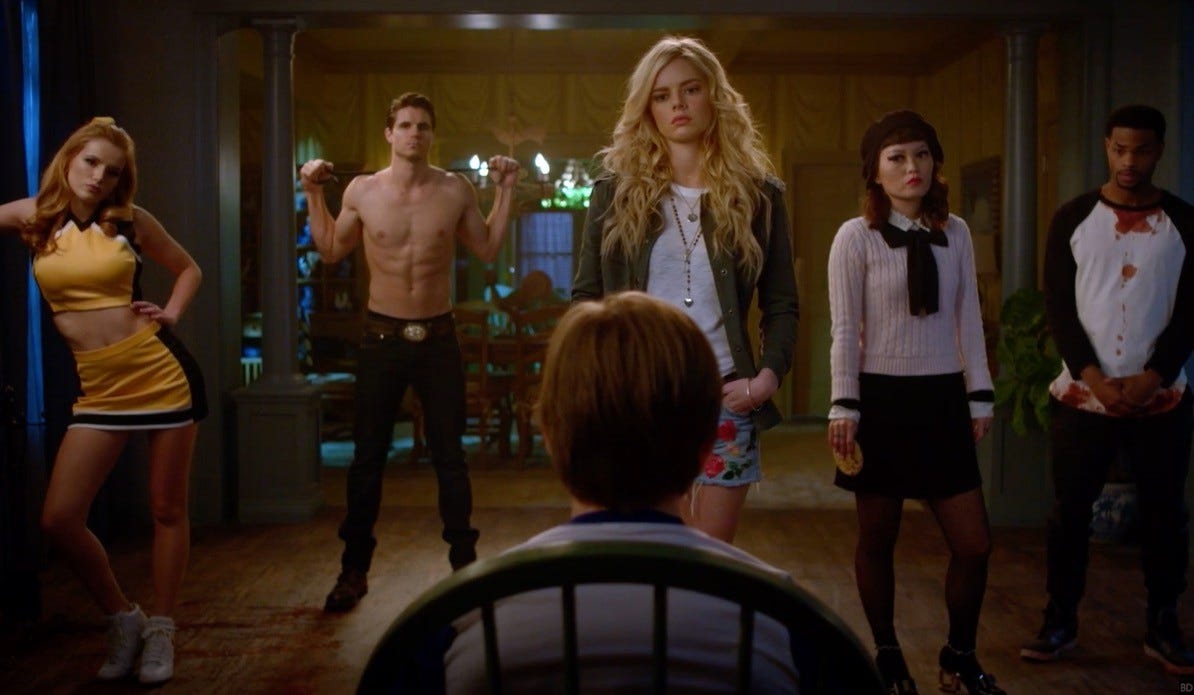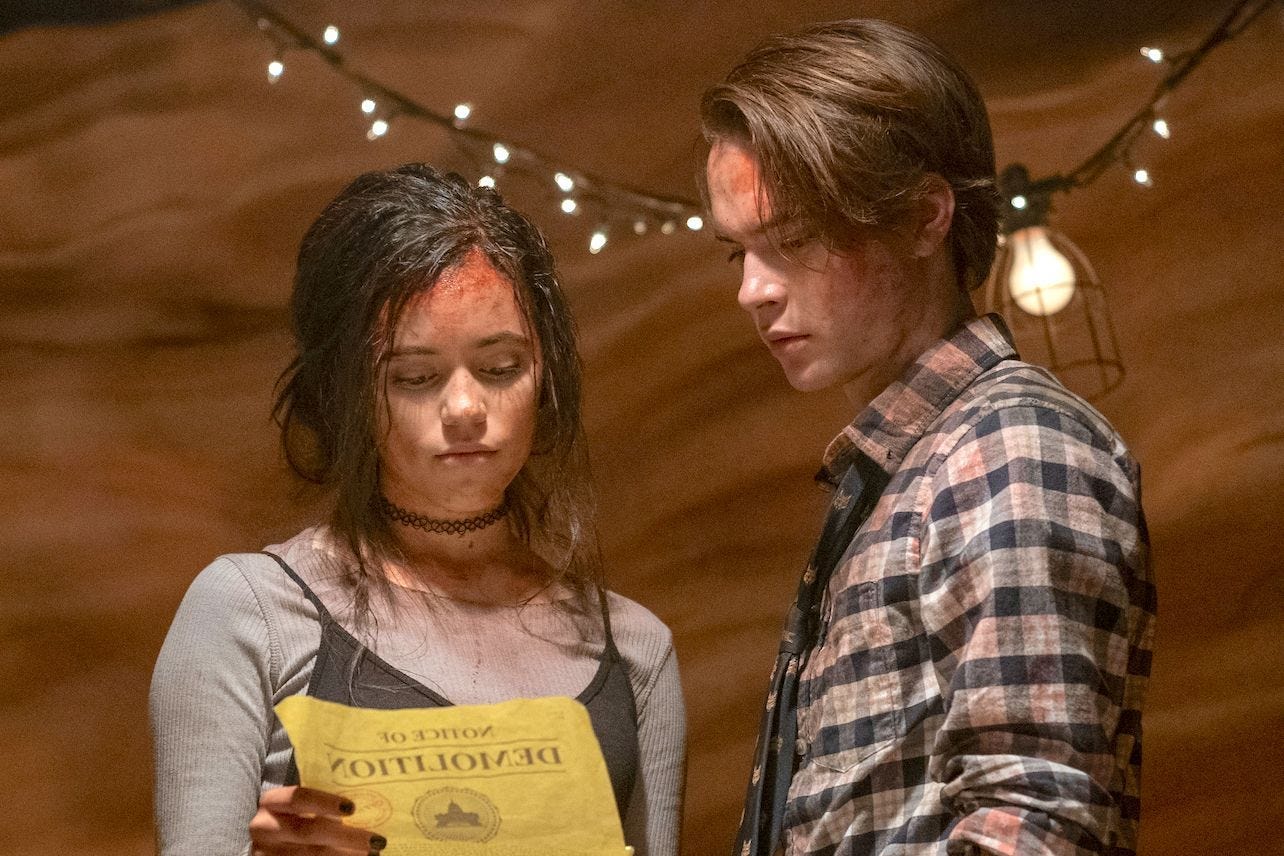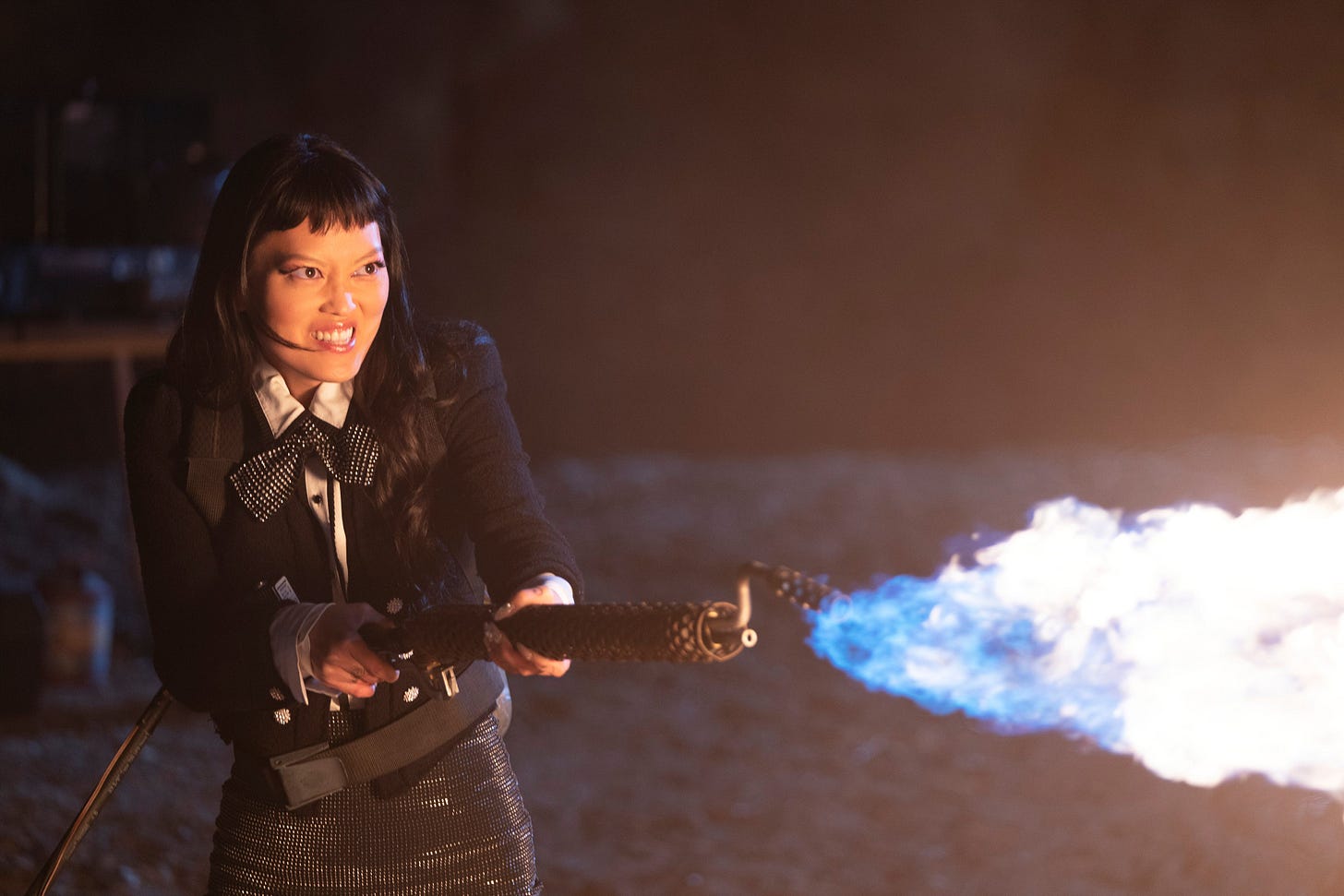Netflix was making several “awards movies” during the period when I was down. But they were also producing a lot of content in general. And it kind of feels like, for many directors, it was like Triple-A baseball. If you were swinging at everything, or you’ve lost a little off your fastball, then Netflix was the place to work on your craft, make a smaller movie that entertains a few people while otherwise getting lost in the algorithm, so that it’s on your resume unless it doesn’t have to be. If “The Babysitter” worked, McG (“Terminator: Salvation”) could run to the studios and say he’s got a streaming hit on his hands. And if not, no one has to know!
I will say this about McG, one of the most nakedly pop-centric filmmakers in the industry: “The Babysitter” works, capitalizing on his strengths and minimizing his weaknesses. It starts out as a standard coming-of-age movie about Cole, a nerdy boy with a crush on his super-hot sitter (Samara Weaving, a legit star). The movie exaggerates all the wouldn’t-it-be-great tropes of these movies like everything is happening within a thirty second commercial, an obnoxious tic unless you realize so few filmmakers can actually pull that off for such a long period of time, but McG can. Lousy storyteller, but if you ever had to make a ninety minute Target ad, he’s the best candidate for the job.
The twist, courtesy of a much-beloved script from Brian Duffield, is that she’s a witch! Maybe not a witch, maybe she’s just into witchcraft. Seems ambiguous. But there’s a Satanic ritual, and the sitter of the title determines that the boy is the perfect vessel. In a way, it’s a supernatural “Home Alone”, except that the bad guys have been inside the house the whole time. And the main bad guy is the girl of any boy’s dreams, which shouldn’t be a complicating factor unless you were a pre-teen boy.
Weaving, as I’ve discovered, is one of the great finds in recent Hollywood vintage. So much so that I found it joyless to watch her Aussie compatriot and doppelganger Margot Robbie nuke her from orbit in a meta moment of “Babylon” (which I saw alone on Christmas Eve, on a trip from the halfway house). Nevertheless, she’s the standout in a cast where (almost annoyingly) her Satanic crew is peppered by a group of scene stealers. The joke of the movie, courtesy of McG and Duffield, is that Weaving and her fellow Satanists seem less like an evil clan of schemers and more like a bunch of internet weaned goofballs. This includes actual internet comedian (beats me) King Bach, and famous-for-being-famous Bella Thorne, who I am fairly convinced is just a renegade strand of advanced a.i.
This could have been a lighthearted romp for kids, or a morbid envelope-pusher of a horror film. Fortunately, impressively, it’s something in between, a naughty thriller that doesn’t skimp on gore, while foregrounding a lot of laughs without lingering on them for too long. The boy’s journey is paramount, going from a fairly-pampered young kid to a brave young adult who can make decisions on his own. Which is sort of impressive, since he’s constantly battling against Samara Weaving constantly telling him to do the opposite of what he knows is right. Were any of us boys so tested at a young age?
My understanding is that Netflix is frequently threatening sequels and franchises that never come to fruition. I recall seeing a bootleg of “Bright” in prison and thinking there was no way they’d follow through on the already-announced plans to crank out a second one of those. Surprisingly, the streamer was excited to jump aboard “The Babysitter: Killer Queen”, which followed in 2020. Duffield may have been the MVP of the first one, because the second film has four other writers instead, one of them being McG. The fall-off is noticeable.
Now Cole is in high school, and while he’s grown into himself, no one seems to believe his account of what happened two years ago. But this entry is less witchy and more cult-adjacent, and he ends up getting involved with another cult, this time to resurrect Weaving. Her screen time is limited as, by this point, she was busy tackling bigger projects, and her absence is felt. Jenna Ortega pinch hits as a benevolent (but, obviously, gothy) love interest for Cole, but her character doesn’t add much. It also feels as if there’s considerably more riffing, both from the cast but also from McG. Unlike the first film, which featured a few good laughs, the movie can’t decide if it’s going to be a straight comedy or a spoof. The biggest sin here is that befitting nearly all comedy sequels – you cannot repeat the exact same gags just because people liked them the first time. I’m not sure why so few filmmakers heed this.
These films largely focus on the relationship between young men/boys and women with a great deal of power over them, which of course made me think of the female guards in prison. Obviously they were in the minority, but there were always a few. They tended to be nicer than the male guards, but that didn’t mean you felt more comfortable around them. To be a woman in a hostile masculine atmosphere like that is to always be on guard. Often, all it took was the wrong comment or gesture and those guards could easily send you away.
I would be concerned if I knew a woman who was a c.o. at a prison. One wrong moment and you could endure attacks from caged men who haven’t experienced intimacy in a fairly long time. Every female c.o. I met was entirely capable of their job, but that specific gender element is just another reminder that incarceration is not an answer. Most of these men have spent years without meaningful interaction with a woman, and many of them only considered women through a superficial layer of otherness. Now you have this added layer of otherness, that being the captor/prisoner dynamic, and conflict is inevitable.
Unfortunately, that means some of the female guards will overcompensate. You’re more likely to be slapped down with an Incident Report you don’t deserve by a woman who felt threatened by you. I found myself taken away once because the female guard felt I was too close to her while we stood in a narrow hallway. I had never had any negative interactions with the officer in question, but I was taken in regardless. When male officers actually doubted her account — another conflict female c.o.’s have to experience — she re-wrote the nature of our interaction with the added term “feared for my life”. I never carried anger towards that guard, even though I ended up spending three months in solitary as a result. But what woman in such a scenario wouldn’t fear for her life on a daily basis?







